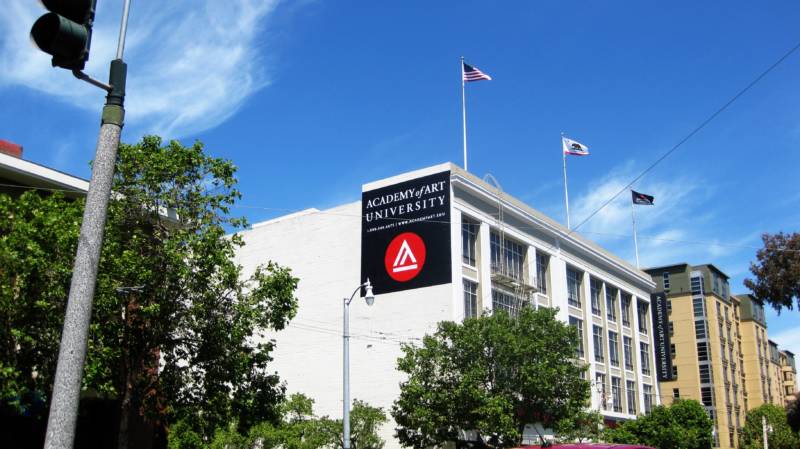"I think it's totally premature," AAU attorney James Brosnahan said of the suit.
The action, filed Friday in San Francisco Superior Court and embedded below, says the university's "unlawful real estate scheme" has removed more than 300 residential units from the city's tight housing market and shrunk the supply of office space amid a historic business boom.
Six of the buildings cited in the suit were converted from residential structures to student housing and another three were hotels changed for the same purpose.
The legal action, which comes after a long dispute between the city and the university over how the school's property has been handled, says AAU's building acquisitions were part of a long-term effort to expand the college "for the financial benefit of the founder's family. But in so doing, AAU has ignored the needs of San Francisco as a whole, the rules that apply to every other person and institution, and the legal requirements San Francisco has placed in particular on educational institutions."
The college grew from 5,000 students in the early 1990s to a peak of 18,000 several years ago. It says its current enrollment is about 16,000.
The suit catalogs 22 buildings purchased by limited liability companies set up in Delaware to hold property owned by Academy of Art University President Elisa Stephens and other members of her family. The city says the academy, the Stephens family and other defendants have "flagrantly ignored and flouted the zoning restrictions applicable to their properties that govern all San Francisco property owners."
Among other things, the city says, ignoring the city's planning requirements has deprived neighbors of a chance to sound off on changes the university has made to its properties.
"Enough is enough," the lawsuit says. "After years of deliberate noncompliance in the face of notice their uses violated the law, repeated missed deadlines, and recurrent unfulfilled promises, it is time for defendant AAU and all other defendants to bring their properties into compliance with the law."
But university AAU attorney Brosnahan says the lawsuit is without merit and unnecessary and in fact interferes with work he says the university has been trying to do with San Francisco planning officials.
He says the University has spent $8 million and nine years working on an environmental impact report required for the legalization of the properties, and expects it be completed by July 1.
"The Planning Commission has been working extremely hard to bring all this to an end and a conclusion," Brosnahan said. "And the academy has been working very hard with the commission for months to bring this to a conclusion that would be suitable for the city -- and the city attorney is aware of it."
Brosnahan said Herrera's suit ignored overtures from the university to turn over a building it owns, the Beresford Manor hotel on Sutter Street between Mason and Taylor in lower Nob Hill, which he said could provide 87 units of low-income housing. Brosnahan also said the university has "put on the table" $10 million "over time" as part of its negotiations with the city.
Herrera's lawsuit "ignores the enormous contribution that the academy has made and is making to this community," Brosnahan said, adding that he feels Herrera is "grinding a political ax" and is "a little bit out of control on this matter."
Sonja Hutson contributed to this report.

